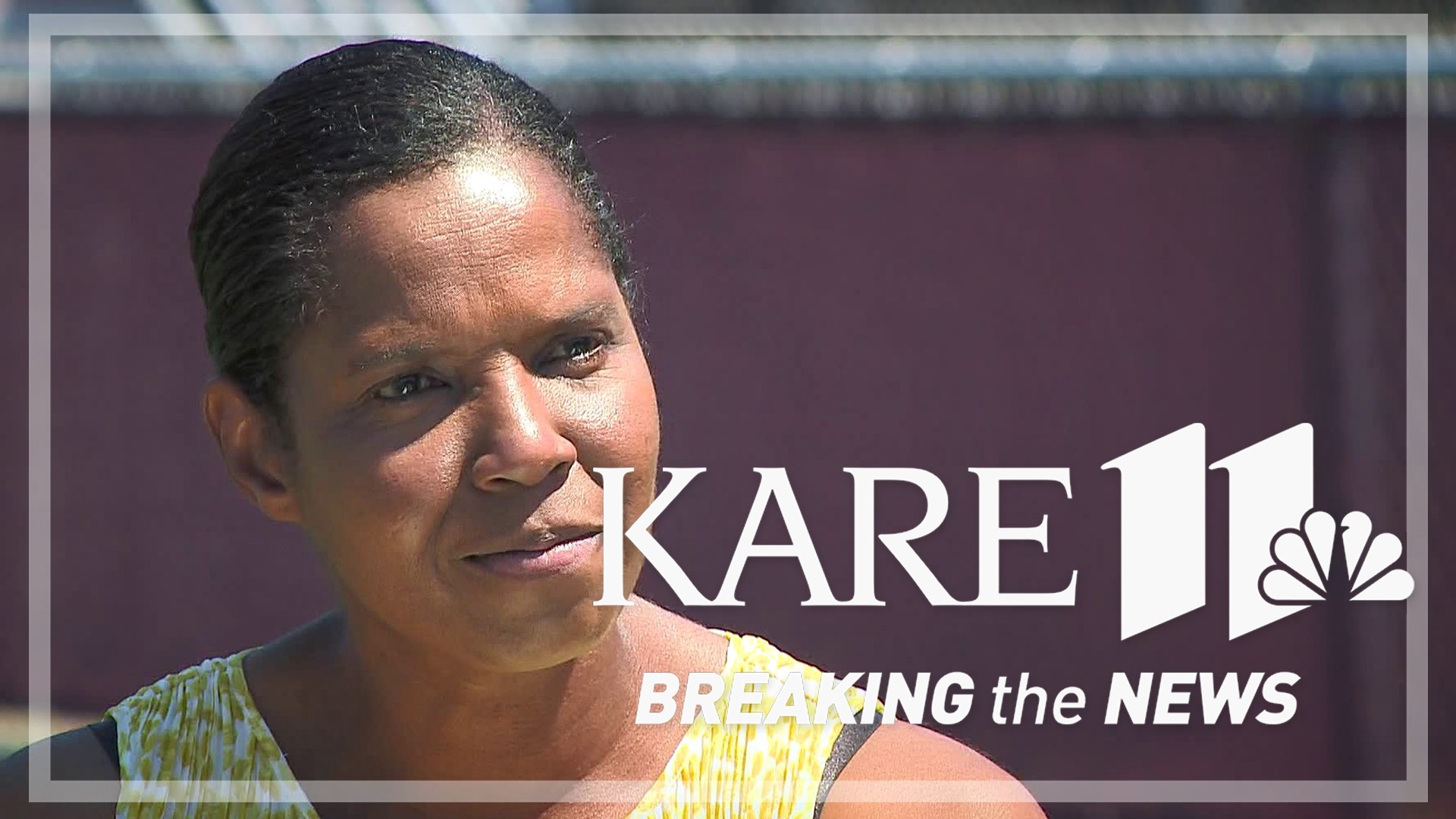ANOKA, Minn. — Twin Cities native Briana Scurry is one of the greatest soccer players of all time. She was the first openly gay player on the Women's National Soccer Team — and the first Black player on that team.
But her firsts aren't her only legacy, nor are are the goals she stopped.
Goodrich Field, Anoka, Minnesota, is home to Briana Scurry.
"I haven't been here in so long," Scurry said. "It's fantastic; a little bit of nostalgia."
It's where she became an all-American goalkeeper and paved her way to a college scholarship, Olympic teams and the Women's National Team — but she dreamed of those things years before.
"When I was 8 years old, I saw the 1980 Lake Placid ice hockey team playing the USSR. Somehow, instinctively, the little 8-year-old girl that I was saw greatness occurring on the screen and wanted to be an Olympian as soon as I saw that team win," Scurry said. "Al Michaels was like, 'Do you believe in miracles?' And I was like, 'Yes, I do! I want to be an Olympian!'"
She dared to dream and made it her reality, carrying identities that made her a "first."
"Being the only African American player on essentially every single youth team; being the only openly gay player on the Women's National Team, that was a first."
And she ran to celebrate that "first" after that 1999 World Cup win.
"There's video of me in 1999 after we won, running into the stands to meet my then-girlfriend and the camera is watching me run up to her, and as soon as they realized it was a woman, cut away," Scurry said.
It would be many years before the cameras wouldn't cut away from the love two people like her would share — but she kept going.
She went on playing, winning, until a career-ending head injury — a traumatic brain injury — cut it all short and took her to the edge.
"What happened was, I thought about my mom in that moment. I was standing on the ledge of the falls, thinking about going over, knowing I couldn't swim, and something in my mind went to a space, a vision, of her sitting on her bed at home; a knock at the door, some official informing her that her baby was gone. And that was the thing I latched onto. I couldn't do that to her. I went outside of myself," Scurry said.
She added, "I didn't see that woman that I was anymore. That was part of it. I would see pictures of me making that great save and I would think, 'Wow, I know that's me, but I can't see how I did that.'"
Eight years ago in that darkness, Scurry not only couldn't will herself better, she couldn't pay the bills. She even resorted to pawning her gold medals.
"I was at a really low point — behind on my rent, behind on bills. I felt I had asked my friends for enough money," she said.
But when she walked away from that ledge, and had that money, light started to come in, in that memory of her mom. She then met her now-wife, and when she got the surgery to heal her brain injury, she transformed into this person you see today.
She continues to tell the story of the greatest save, and it isn't the one in the game — it's the one that kept her alive.
"That truly is my greatest save; not what I did on the pitch, but what I did off of it," Scurry said.
This story is just a snapshot of Briana's book, "The Greatest Save."
If you or someone you know is facing a mental health crisis, there is help available from the following resources:
- Crisis Text Line – text “MN” to 741741 (standard data and text rates apply)
- Crisis Phone Number in your Minnesota county
- National Suicide Prevention Lifeline at 1-800-273-TALK (8255), Talk to Someone Now
- Throughout Minnesota call **CRISIS (**274747)
- The Trevor Project at 866-488-7386
Watch more Breaking The News:
Watch all of the latest stories from Breaking The News in our YouTube playlist:

